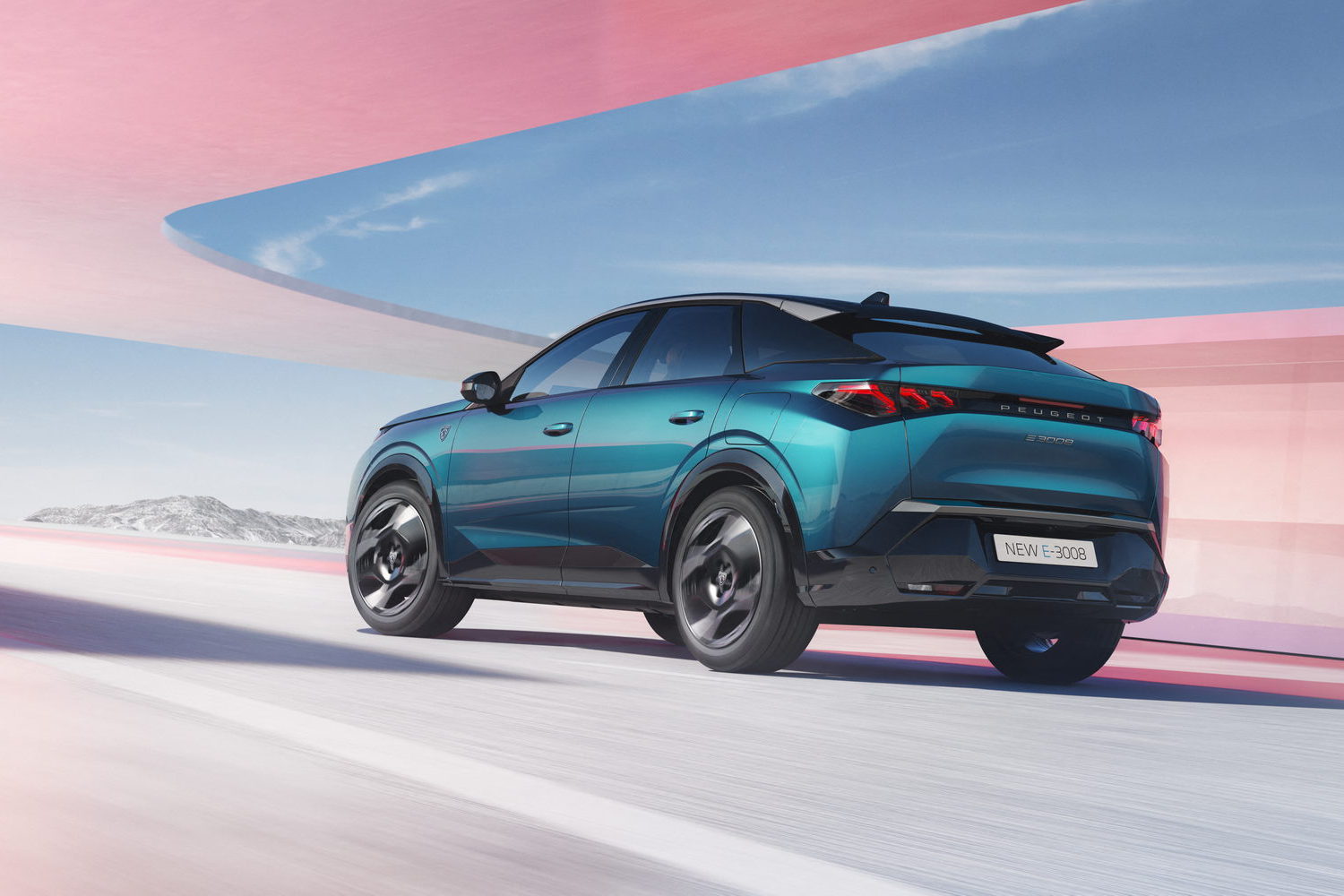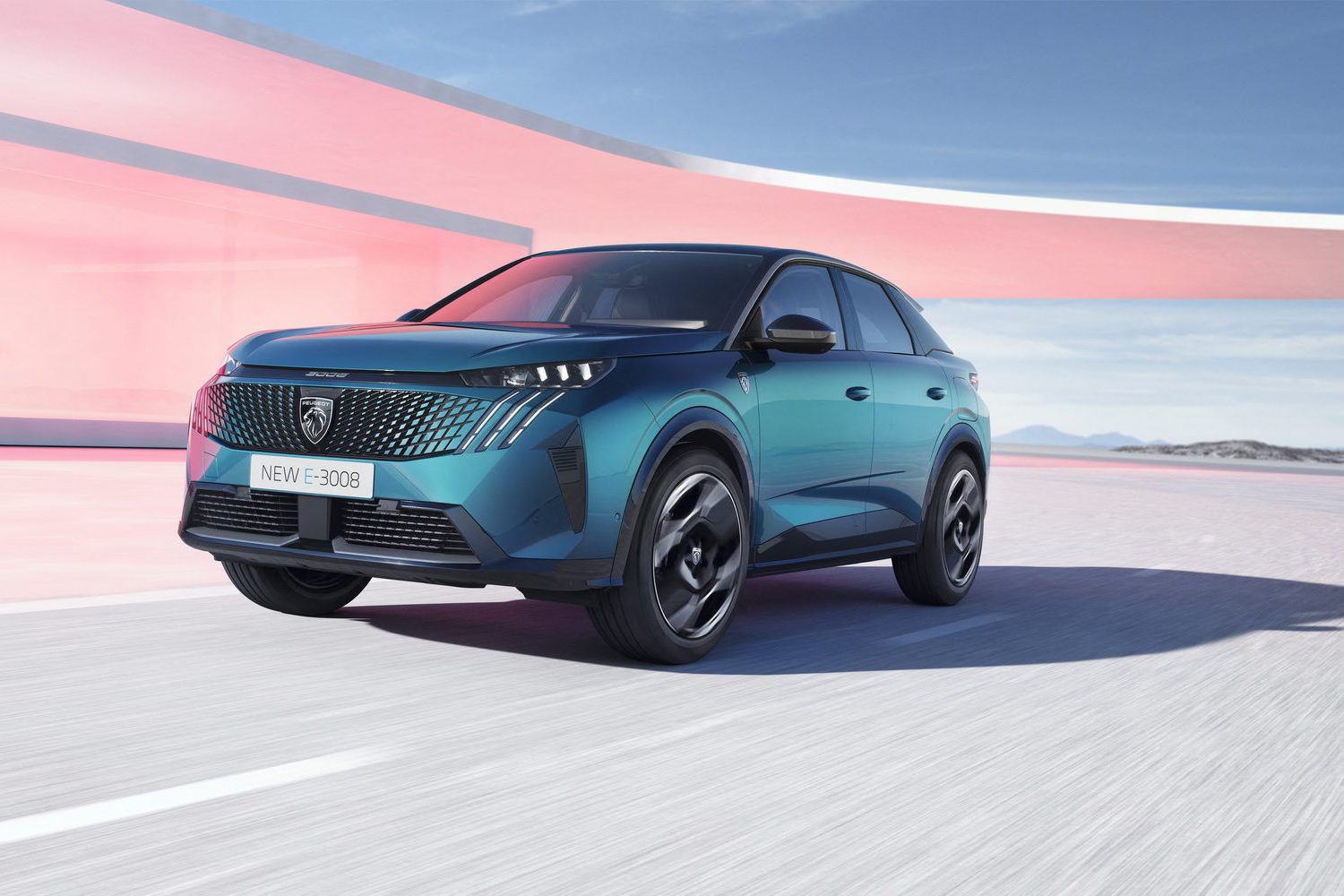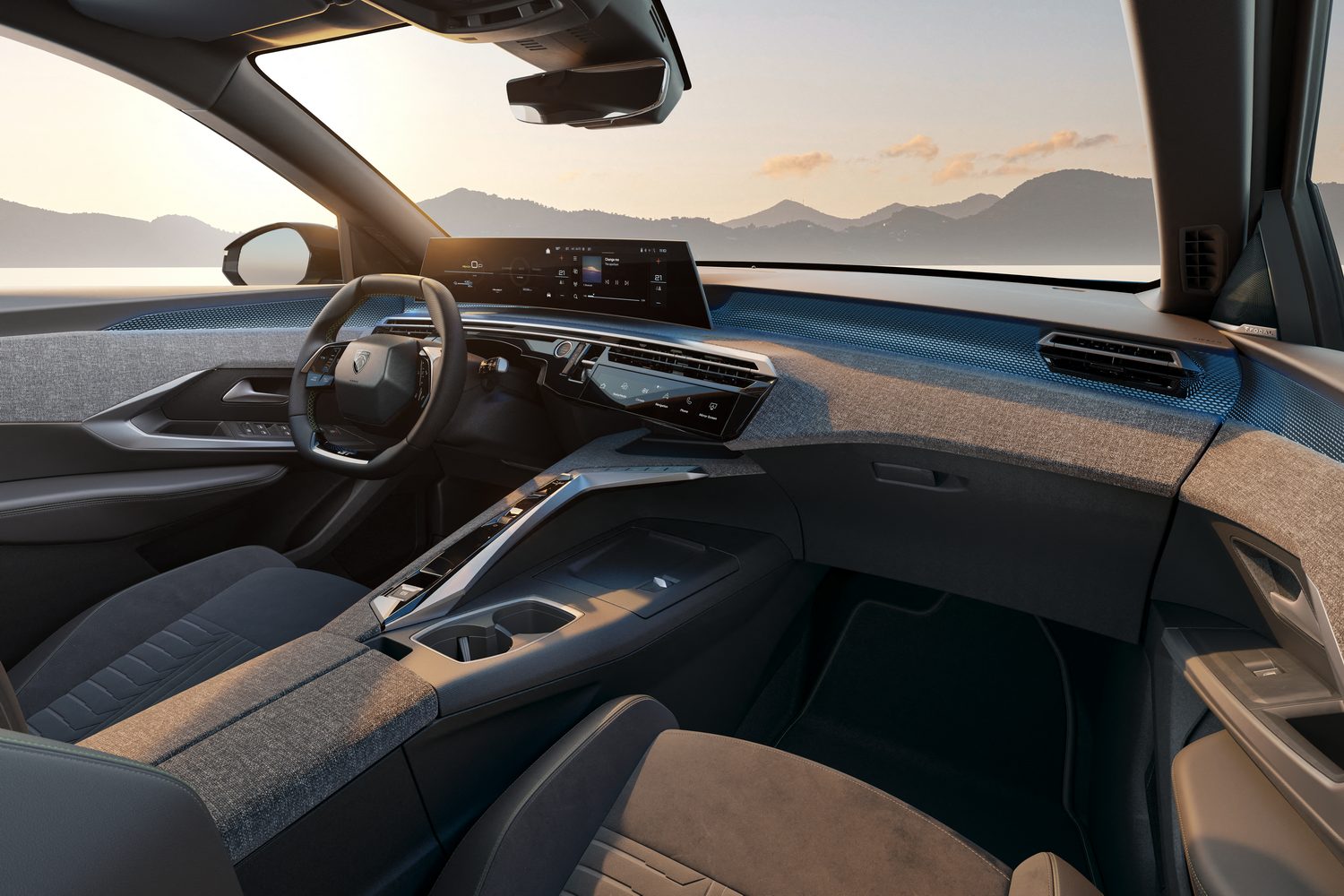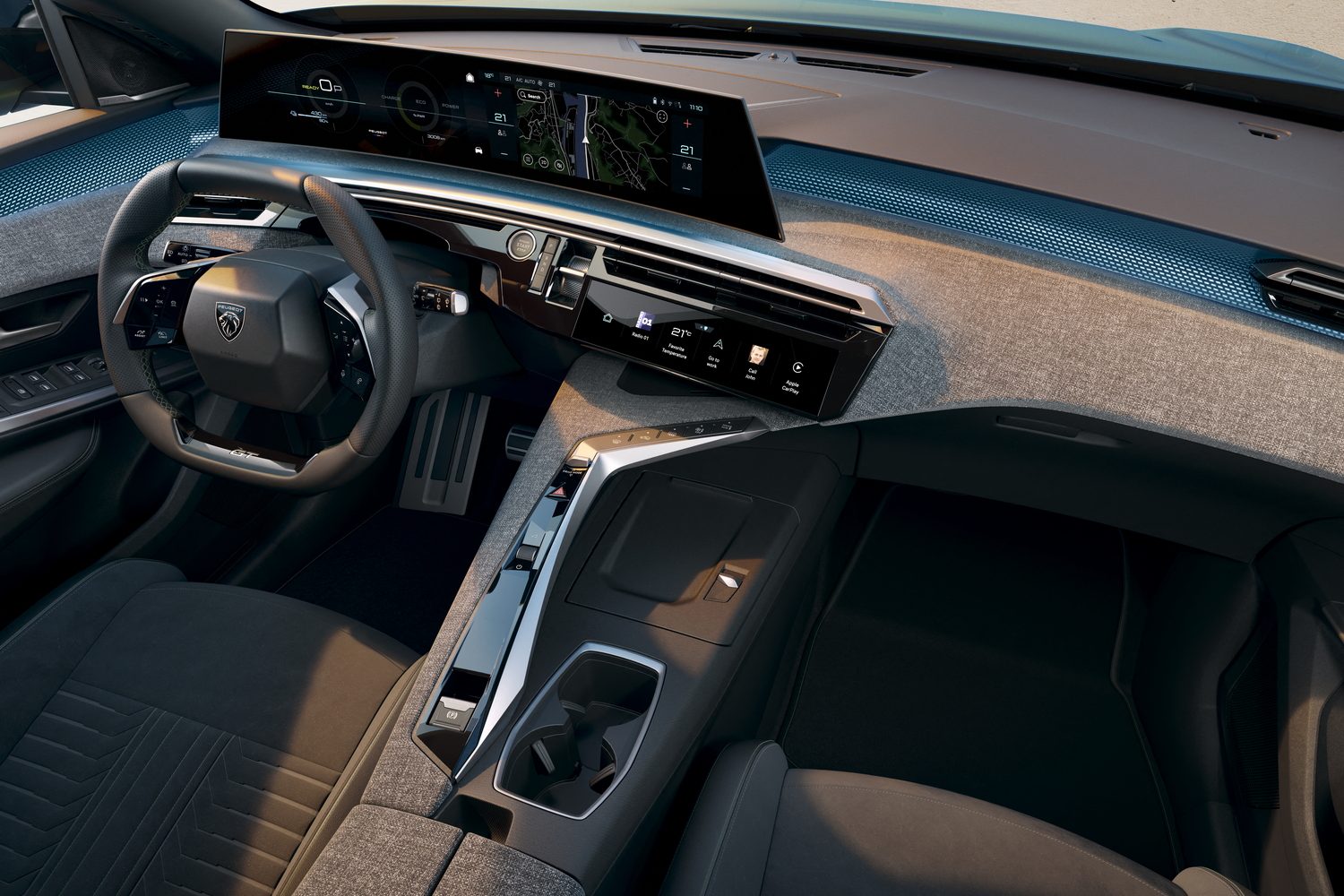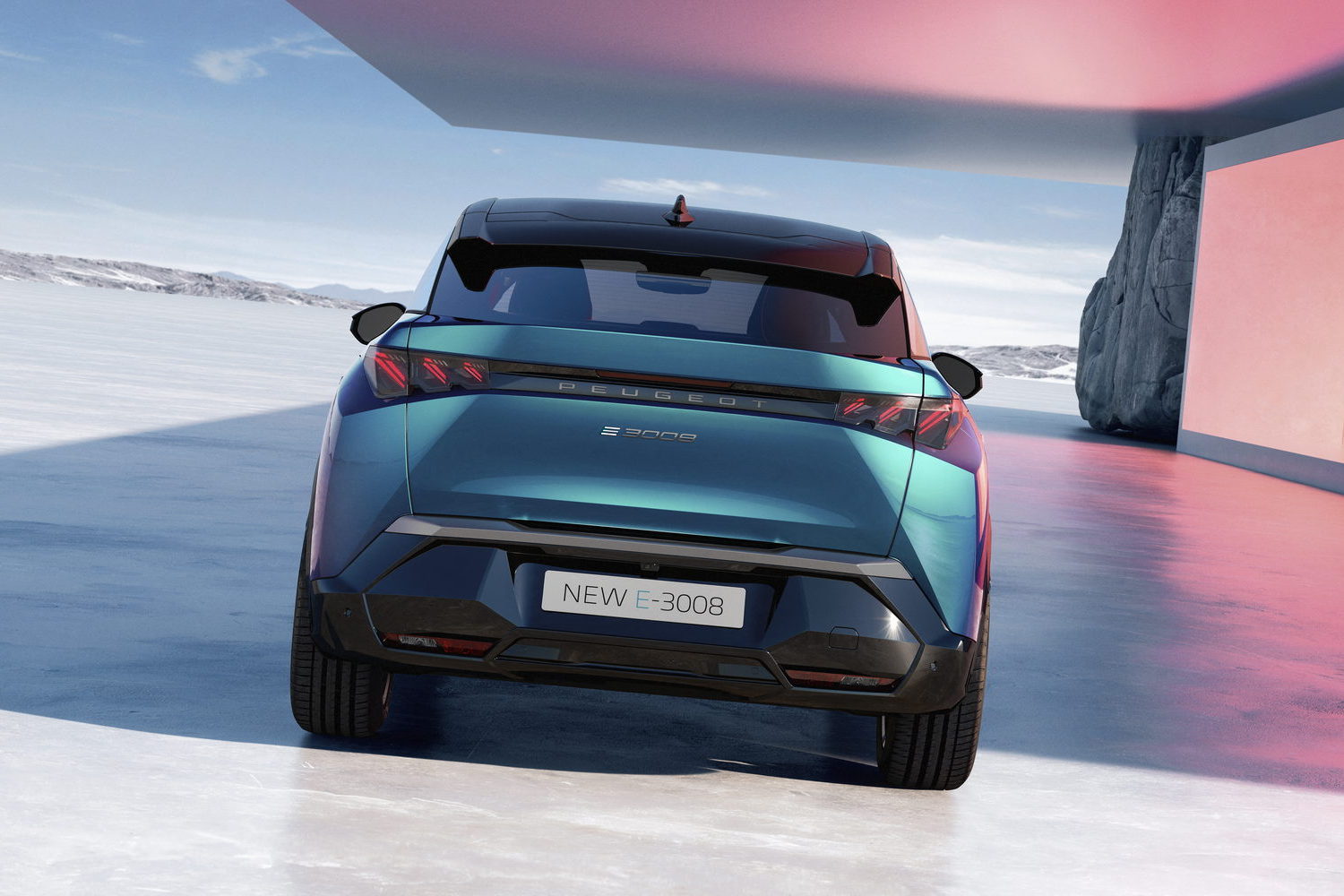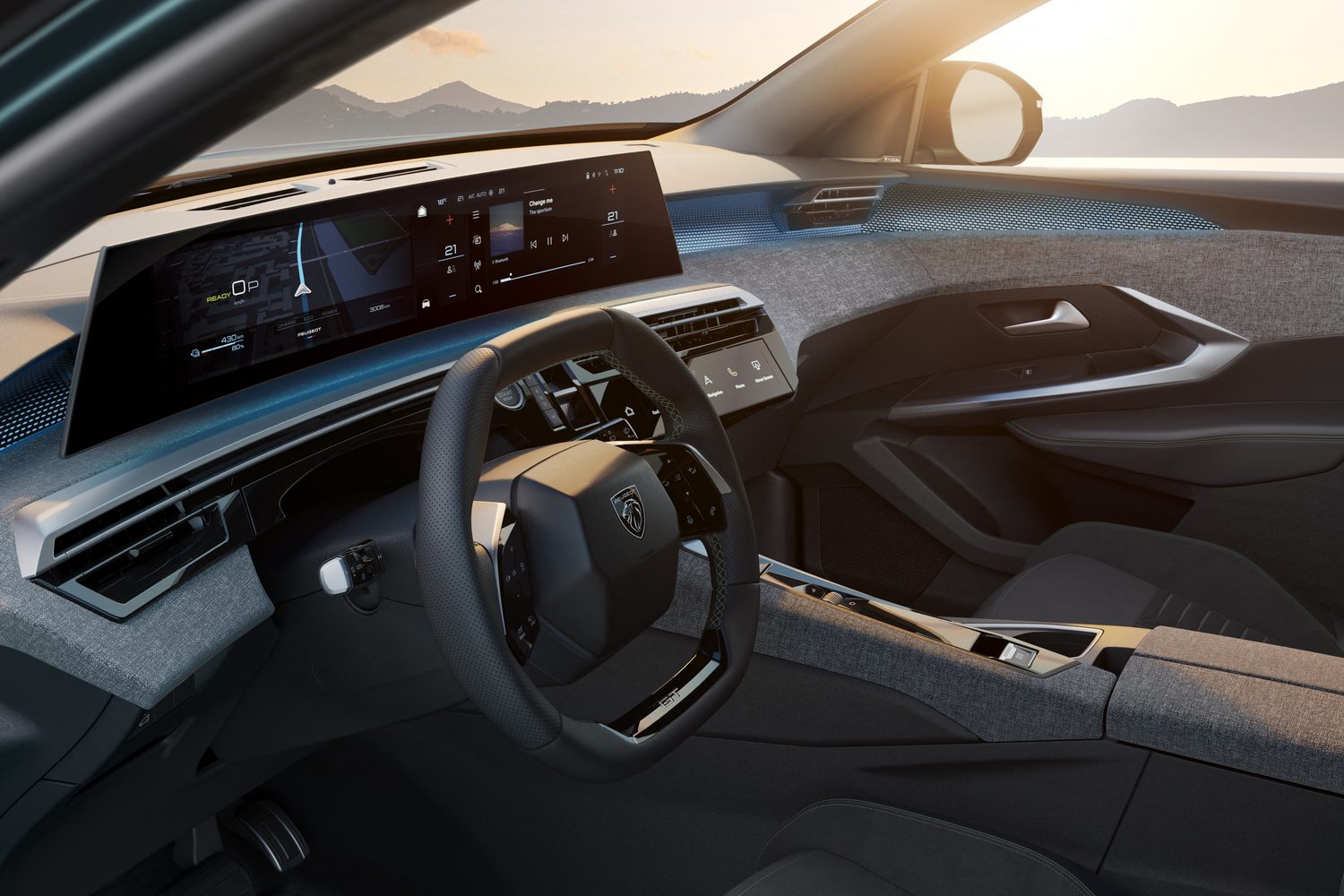An all-new Peugeot 3008 crossover/SUV will be unveiled later this year before going on sale in Ireland in 2024, and Peugeot is teasing the third-generation model's arrival already with a first look at its new 'i-Cockpit' dashboard layout.
Into the great wide open
The latest version of i-Cockpit measures 21 inches across, and comprises two digital displays with high-definition graphics. The screens are gently curved to help prevent glare and angle the layout towards the driver, but the central screen should be within easy reach for both front-seat occupants to use it. It's mounted on a bracket that is hidden from cabin occupants to create a 'floating' effect, which is further enhanced by LED ambient interior lighting beneath it.
The driver's display will be the main source of information regarding the car's speed, energy consumption, driver assistance tech and power use, and this will all be visible above the top edge of the steering wheel. The wheel is small and has a flat top to help facilitate this.
The main touchscreen is used to operate all of the major functions, including climate controls, navigation, connectivity and vehicle settings. This means that there are next to no physical controls on the dashboard beyond the steering wheel, column stalks and drive selector. The latter comes in the form of a toggle switch that's set high on the dashboard next to the starter button, which frees up space on the centre console.
Keyboard warrior
Below the main widescreen display is a touch-sensitive pad that is home to the 'i-Toggle' shortcut keys. These can be used to navigate straight to specific functions, and are fully customisable. Peugeot claims that not only can they be used for shortcuts to things such as navigation, climate and radio, but they can be set up to incorporate favourite phone contacts or regularly used nav destinations. There's room for a total of 10 i-Toggle pre-sets.
Beneath this is a bank of touch-sensitive buttons for quick climate settings, and next to those is the driving mode control, with Eco, Normal and Power settings, as well as a 'B' indicator that shows when the stronger regenerative braking setting is selected on certain models. All versions of the new 3008 will use some electrification.
This new dashboard layout is designed to free up space in the cabin, and the first images confirm that the high-set centre console splits the interior in two and makes room for a wireless charging pad, twin cup holders and a storage bin under the centre armrest. A swathe of fabric trim is used across the centre console and dashtop, while fabric is also used on the doors to blend them all together. High-set air vents with metal-effect trim are employed, while gloss-black plastic also appears.
Peugeot has also taken the opportunity to redesign the steering wheel that comes as part of the i-Cockpit layout. It's still small, but it features a new central steering boss that stands proud of the two steering wheel spokes. Those thick spokes feature touch-sensitive buttons, but are designed not to be activated accidentally, because while they're sensitive to touch, they don't operate unless they are pressed, which is confirmed by a click when they are used.
History of i-Cockpit
Peugeot has been using its i-Cockpit configuration for a decade now, although it hasn't been popular with everybody. The theory behind the layout is simple, in that the dials are set high on the dashboard, and a small steering wheel means they can be seen above the rim of the wheel, in the same way that a head-up display works.
This is meant to help keep a driver's eyes on the road for longer, but it's not a layout that can work for everyone, with some people unable to find a comfortable seating position that also allows them to see the dials. Often the compromise is to have the small steering wheel placed in your lap to be able to see the dials properly, although the amount you can see varies depending on model.
These complaints haven't stopped Peugeot persevering with the configuration, though, and it has had varied success in lots of different models, from the 208 hatch to the Rifter van-based MPV. Peugeot has also used it in the 9X8 endurance racing car.
More details about the new 3008, including powertrains, equipment and performance, will be revealed as we edge closer to its launch later this year.


